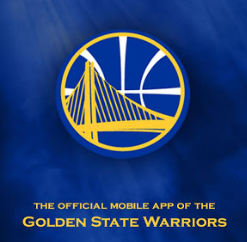In this week’s News of Note, Amazon continues its competition with Starlink by launching another batch of internet satellites, WhatsApp receives a ban by congressional staffers and “the ChatGPT of quantum computing” launches in Canada. Elsewhere, Texas Instruments announces a major investment in semiconductor production in the United States.
Articles Posted in Mobile app legal issues
Beacons, Basketball and the App that Hears Too Much
 What are the privacy limits when users give permission for an app to access their smartphone’s microphone? A purported class action filed last week by LaTisha Satchell (a New York resident) against the Golden State Warriors (the first NBA franchise employing such an app), Signal360 (the New York-based licensor of the relevant technology) and Yinzcam (the Pennsylvania-based app developer) tackles this issue. Plaintiff filed her complaint in the Northern District of California, asserting violations of the Electronic Communications Privacy Act of 1986 for the class that downloaded the Android version of the Warriors app and for a broader class of those using any Android app with the Signal360 technology.
What are the privacy limits when users give permission for an app to access their smartphone’s microphone? A purported class action filed last week by LaTisha Satchell (a New York resident) against the Golden State Warriors (the first NBA franchise employing such an app), Signal360 (the New York-based licensor of the relevant technology) and Yinzcam (the Pennsylvania-based app developer) tackles this issue. Plaintiff filed her complaint in the Northern District of California, asserting violations of the Electronic Communications Privacy Act of 1986 for the class that downloaded the Android version of the Warriors app and for a broader class of those using any Android app with the Signal360 technology.
Social Media & Games: 2013 Year in Review
2013 was an incredibly active year for social media legal issues. Below are selected highlights on some of the more interesting legal issues that impacted social media, along with links to reference material relating to the topics.
1. Virtual Currency/Bitcoin
FinCEN Virtual Currency Guidance and Enforcements – FinCEN published legal guidance on virtual currency making clear that existing regulations regarding money transmitter and anti-money laundering laws apply to certain virtual currency activities. Shortly after issuance of the guidelines,
a wave of enforcements shut down non-complying entities. [BLOG]
Congressional Hearings on Virtual Currency – Congressional hearings were surprisingly more friendly and receptive of Bitcoin and other virtual currencies.
2. Privacy – Guidance and Enforcements
COPPA – The FTC issued new guidance
and FAQs for children’s online protection due to evolving technology and changes in the way children use and access the Internet, mobile devices and social media.
CA Privacy Law
– California passed new privacy laws.
3. Intellectual Property/Patents
Patents – The number of social media patent filings continued to increase. The America Invents Act (AIA) fully kicked in, providing a greater ability to challenge patents believed to be invalid without going through district court litigation. The Fast Track
process to get patents issued more rapidly (often in less than a year)
continued.
Ownership of Social Media Accounts and Followers – Despite a number of cases (including ones involving LinkedIn and Twitter) relating to ownership of social media accounts, the law remained murky and fact specific.
This uncertainty can be avoided by proper attention to social media policies before issues arise.
4. Employment Law and Social Media
National Labor Relations Board (NLRB) – The NLRB continued to issue surprising guidance and decisions on social media usage. In many cases, some or all provisions of employers’ policies governing the use of social media by employees were found to be unlawful. [BLOG] The NLRB affirmed that workers have the right to discuss work conditions freely without fear of retribution,
whether the discussion takes place in the office or on Facebook. But later in the year it actually found some uses of social media for employment (firing) decisions to be okay.
Employer Access to Social Media User Names and Passwords – By year end, 36 states had passed or initiated legislation prohibiting employers from requesting personal social media account information or passwords in connection with employment decisions.
National Conference of State Legislatures Report – Some states have similar legislation to protect students in public colleges and universities.
5. Online Gaming
First mover states
forged forward with online gambling.
· Nevada – Legalized online poker and granted its first licenses for interactive gaming.
· New Jersey – In February, passed legislation (signed into law by Governor Chris Christie) allowing on-line wagering. Subject to certain limitations, licensed operators are permitted to offer online versions of a wide variety of games currently permitted in Atlantic City casinos (e.g., roulette, craps, black jack, and slots).
· Delaware – On October 31, launched what Delaware officials call a “full suite” of internet gambling.
Zynga – In September,
Zynga withdrew its bid for a gambling license in Nevada
Federal Gambling Legislation
– The prospects for a federal law for online gambling remain elusive.
6.
Mobile Health Applications
FDA Guidance
– The Food and Drug Administration (FDA) issued guidance that focused on applications that present a greater risk to patients if they do not work as intended or that cause smartphones or other mobile platforms to impact the functionality or performance of traditional medical devices.
FTC Guidance
– The FTC issued guidance in April focusing on truthful advertising and privacy.
7.
Gamblification/Sweepstakes
Florida prohibited
gaming promotions in a cause-related marketing campaign (where purchase of a good or service benefits a charitable cause).
Internet Sweepstakes Café Conviction in Florida – Lawyer Kelly Mathis was convicted on 103 of 104 counts related to illegal gambling based on his role in Internet Sweepstakes Cafés in Florida. He faces up to 30 years in prison. CA, OH, SC and other states moved quickly to shut down similar operations.
8.
Equity-based crowd funding legalized in the United States
SEC Rules
– In October, the SEC voted unanimously to propose rules under the JOBS Act to loosen the rules and permit companies to offer and sell securities through equity crowd funding.
Note:
Equity crowd funding is much like crowd funding, which has been popularized in the United States through sites such as Kickstarter and Indiegogo. The difference is that instead of individuals supporting campaigns through donations, numerous investors are purchasing small stakes in startups or small businesses.
Critics Emerge
– Critics of equity crowd funding worry that the industry will be rife with Ponzi schemes or that having too many investors will hurt startups’ prospects for future funding.
Pillsbury originally discussed this in a January 2012 client alert and March 2012 Blog Post.
9.
Endorsements
FTC Enforcements on Fake Endorsements – In February, the FTC permanently stopped a fake news website operator that allegedly deceived consumers about acai berry weight loss products. The settlements will yield more than $1.6 million and conclude a sweep against online affiliate marketers and networks. The sites falsely claimed endorsements from ABC, Fox News, CBS, CNN, USA Today and Consumer Reports.
Many companies’ understanding of and compliance with the FTC Endorsement Guidelines remains lacking, yet enforcements continue.
10.
Wearable Computing Lawsuit
Google Glass Liability? – In what may be a foreboding development, a California woman received a traffic ticket for wearing Google Glass while driving. Many states have broad distracted-driving laws or bans on certain monitors that may apply to Google Glass and similar wearable computing devices.
Blurry Lines: Legal and Business Uncertainty in Social Media
Join Pillsbury for a three-event series addressing legal, regulatory and business issues confronting the universe of social media, games and mobile applications.
The first event in the series is Mobile Applications and Games on Wednesday, October 16 from 6:00 – 9:00 pm.
The mobile applications and games market is exploding. However, more companies are running into legal issues regulatory enforcements. As companies develop unique and creative games and mobile apps, it is critically important to understand key legal and regulatory issues.
This program will address:
- Overview of legal issues with mobile applications and games
- Recent regulatory enforcements
- IP Protection for mobile applications and games
- Legal issues with mobile payments and other business models.
Crushing App-Cloning
 King.com, maker of some of the most popular Facebook and mobile games, filed a complaint in the Northern District of California Tuesday, claiming competitor 6Waves cloned King’s Pet Rescue Saga and Farm Hero Saga games in developing its own Farm Epic and Treasure Epic titles. King is also the maker of “Candy Crush Saga,” which is currently the most popular Facebook game.
King.com, maker of some of the most popular Facebook and mobile games, filed a complaint in the Northern District of California Tuesday, claiming competitor 6Waves cloned King’s Pet Rescue Saga and Farm Hero Saga games in developing its own Farm Epic and Treasure Epic titles. King is also the maker of “Candy Crush Saga,” which is currently the most popular Facebook game.
King alleges a number of similarities that it claims go beyond “the product of two games working within the same genre.” For example, similarities between Farm Hero Saga and Farm Epic allegedly include the “highly similar tutorials;” a similar “yellow-gold ‘Goals’ banner before each level; the “highly similar placement of exactly 5 boosters (the first of which is a shovel) [] with functionally similar boosters being earned in a similar order;” that both games “introduce these boosters at the center of a yellow starburst graphic;” and the layout of the game map including that “the nodes used to represent the individual levels in the map are substantially similar, including a green three-dimensional disc with contraposed placement of a level number and stars-earned per level.”
King also alleges a number of similarities between Pet Rescue Saga and Treasure Epic, claiming that even though “6Waves chose not to copy the exact theme of Pet Rescue Saga in Treasure Epic, its copying of Pet Rescue Saga’s copyrighted expression is, in many ways, even more brazen.” Including similar allegations to those above, King also noted that both games include “an irregular, off-centered design with some blocks pointing straight ahead, some to the right, and some to the left;” that the tutorials “are all but identical in appearance, progression, text, and placement on the screen,” including that a “similarly shaded turquoise-blue pop-up banner appears with a character often on the left-hand side of the banner raising their left hand and giving instruction;” and the fact that “In both games, the first time a trapped pet or lost treasure, respectively, is introduced is at Level 4” and “Both games also employ special ‘bomb’ blocks that explode and destroy surrounding blocks. Again, both are introduced in Level 11.”
King included a number of side-by-side images comparing the various elements of the games in question.
6Waves denied the allegations in a statement by spokeswoman Sharon Lau to Law 360, claiming that “Puzzle solving games and themes like farming and jewels are not unique and have been created by many other companies. Such popular gameplay and themes cannot be copyrighted.”
Recall that 6Waves was also sued for cloning last year – a point that King does not fail to mention. In 2012, Spry Fox accused 6Waves of cloning Triple Town (which 6 Waves had access to under an NDA) in creating its own Yeti Town game. There, after the court denied 6Waves’ motion to dismiss, the parties settled, with Spry Fox gaining all of the Yeti Town assets.
King has sued for preliminary and permanent injunctions, actual damages, and 6Waves’ profits.
Copying within the games industry is prevalent. Some people attribute this to the fact that this is just the way it is and has always been within the industry. This is often premised on the notion that the “idea” for a game is not protectable. But as the game market grows, so to do the losses from copying suffered by the game innovators.
Healthcare Gamification – Regulation of Wellness Programs
Gamification has become pervasive in many every day activities, including health and wellness programs. For companies involved in these activities, you should make sure you are aware of the final Affordable Care Act (“ACA”) regulations on wellness programs. These come into effect in 2014.
Gamification refers to the use of game mechanics for non-game purposes. It is often used to provide incentives for people to take certain actions. The mecahnics often include a combination of things such as rewards, status, levels, exclusive content or other incentives to shape user behavior. Airline frequent flyer programs are a great example – to gain repeat business and customer loyalty, airlines provide points (redeemable for flights and other things), status (priority boarding), premier or executive levels, exclusive content and offers, etc.
Many health and wellness programs use similar mechanics to incent users to engage in healthy activities and/or refrain from unhealthy ones.
Gamification in general can create a host of legal issues of which companies should be aware. The recently finalized ACA regulations, summarized in Pillsbury’s recent Client Alert entltled “Final Wellness Regulations Create New Program Categories and Complications,” identify some specific to wellness programs.
If you have any questions on this or other gamification issues, our Social Media and Games Team has extensive experience in this space.
App Privacy
The use of mobile applications on smartphones continues its trend of strong growth. According to a recent press release, users of Apple’s App Store have downloaded over 40 billion apps, with over two billion downloads occurring in the month of December alone. According to Apple, nearly 20 billion of the 40 billion downloads occurred in 2012. Apple’s App Store first opened in July 2008; thus, users downloaded nearly the same number of apps in the last year as the combined total in the two and a half years before that.
 With numbers like these, it is clear that consumers are embracing the use of mobile apps at an ever growing rate. To meet this demand, developers are responding with a large selection of apps. As reported in an article written by InsideMobileApps, last October, Apple and Google, creators of the two largest mobile application marketplaces, reported that they were hosting approximately 700,000 applications each.
With numbers like these, it is clear that consumers are embracing the use of mobile apps at an ever growing rate. To meet this demand, developers are responding with a large selection of apps. As reported in an article written by InsideMobileApps, last October, Apple and Google, creators of the two largest mobile application marketplaces, reported that they were hosting approximately 700,000 applications each.
However, as the use of mobile applications continues to grow, it is important to consider the legal implications of creating and releasing apps. App developers must not only conform to the relevant law in their own jurisdiction, but they must also consider the law in the jurisdiction of the users of the apps as well.
For example, the California Attorney General’s Office recently established a Privacy Enforcement and Protection Unit to ensure that information collected on the state’s residents conforms to state statues such as the California Online Privacy Protection Act (OPPA). In late 2012, California’s Attorney General has also specifically targeted mobile app developers and operators. Mobile app developers and operators collecting the personal information of California residents must have a conspicuously posted privacy policy that describes clearly and completely how personal data is collected, used, and shared. Without such a privacy policy in place, mobile app developers and operators could face fines. To better assist developers in understanding these requirements, the Attorney General has published a set of privacy guidelines recommending some best practices. While these guidelines provide a general idea of the steps a developer can take to conform to the requirements of the statutes, they may not provide the detailed analysis needed to make informed business decisions.
If your company has released a mobile application or is planning on developing one, be sure to seek solid advice. Contact us for additional information.
Does Your Mobile App Provide Reasonable Access to Your Privacy Policy?
On October 30, 2012, California Attorney General Kamala D. Harris issued a press release regarding a new enforcement effort involving California’s Online Privacy Protection Act, Cal. Bus. & Prof. Code §§ 22575-22579 (“CalOPPA”). CalOPPA requires that “an operator of a commercial Web site or online service that collects personally identifiable information through the Internet about individual consumers residing in California who use or visit its commercial Web site or online service” conspicuously post a privacy policy that complies with specified requirements. In the case of an online service, the privacy policy must be “reasonably accessible … for consumers of the online service.” An operator of a mobile application (“App”) that uses the Internet to collect personally identifiable information is an “online service.” An App’s commercial operator will be required to conspicuously post its privacy policy so that it is reasonably accessible to the consumer. The AG confirmed that, having a website with the applicable privacy policy conspicuously posted may be adequate, but only if a link to that website is “reasonably accessible” to the user within the App. The AG warned that, under California’s unfair competition law, violations of CalOPPA may result in penalties of up to $2,500 for each violation, i.e., for each copy of the unlawful App downloaded by California consumers. Click here for a copy of the California Attorney General Kamala D. Harris’ press release and a sample non-compliance letter.
Around the Virtual World – October 29 – November 2, 2012
 A weekly wrap up of interesting news about virtual worlds, virtual goods and other social media.
A weekly wrap up of interesting news about virtual worlds, virtual goods and other social media.
Google Wallet targeted in patent infringement suit
Google is the target of a new lawsuit alleging its Wallet contactless payment system infringes on a patent issued in late 2007.
Site Unseen: Schools, Bosses Barred from Eyeing Students’, Workers’ Social Media
This year several states have sought to block personal passwords from inquiring principals and bosses.
California Targets Mobile Apps For Missing Privacy Policies
Mobile app developers that don’t post conspicuous online and in-app privacy policies will face $2,500 fine per download.
Girl Scouts Use Social Media, Mobile Tech to Break Cookie Sales Records
The ease of connecting with customers through email, texting and social media is one of the reasons the Girl Scouts are selling more cookies than ever before. Almost $800 million worth of Thin Mints, Samoas and other coveted flavors were sold during the 2011-2012 selling season.
Virtual worlds help autistic kids develop social skills
A new study has suggested that the benefits of virtual worlds can be used to help autistic children develop social skills beyond their anticipated levels.
Around the Virtual World – July 2-6, 2012
 A weekly wrap up of interesting news about virtual worlds, virtual goods and other social media.
A weekly wrap up of interesting news about virtual worlds, virtual goods and other social media.
Twitter Drops LinkedIn Partnership
LinkedIn announced via a blog post on Friday that Twitter would no longer be partnering with the business-networking site to sync updates from one site to the other. This ends a partnership that began in 2009. LinkedIn users can still create updates on the site and click a button to share to Twitter as well, but the reverse is no longer possible.
Two Major Gaming Deals Just Went Down
Two pretty major announcements hit the gaming press Friday. And they have the potential to pretty much completely change the gaming industry. First off, Vivendi is selling off its majority stake in Activision Blizzard. It’s unlikely they’re going to find anybody to just buy the whole thing: AB is valued at $13 billion, and there’s a very, very short list of companies who could afford it and who would be interested.
What Sony’s $380M purchase of Gaikai means for future gaming hardware
Sony Computer Entertainment has been known for its iconic PlayStation hardware, including the PS3 console the PlayStation Portable, now called Vita. But does its future lie in proprietary hardware, or in a delivery platform that brings PlayStation games to any connected device? That’s one possible implication of a $380 million acquisition of Gaikai, a Silicon Valley provider of gaming delivered through the cloud.
Health-care apps for smartphones pit FDA against tech industry
Three tries. More than two years. And roughly $150,000. That’s what it took for MIM Software to get the Food and Drug Administration’s clearance for a smartphone application that physicians can use to view MRIs and other medical images.
Xbox Class Sues Microsoft For Blocking Online Access
A California Xbox video game system owner filed a class action in Washington federal court on Friday accusingMicrosoft Corp. of breaching contracts with consumers by blocking access to its Xbox Live online service without issuing refunds for their subscriptions, purchases and credits.
Usher Wants a Virtual You to Dance at His Concert
Pop star Usher is looking for new backup dancers — virtual ones — for his upcoming London concert, which will be live-streamed June 11 from Hammersmith Apollo. Starting Friday, fans can create digital avatars of themselves to win the chance of becoming a choreographed dance square during Usher’s performance of “Scream.” American Express teases the interactive element in the above video, shared first with Mashable.
 Internet & Social Media Law Blog
Internet & Social Media Law Blog



